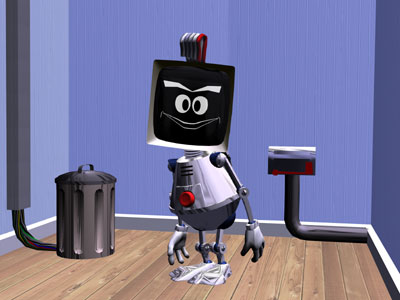 People are a major source of Web traffic. And the traffic is so loud! Most of what I hear is chatter about how people spend too much of their time in the Internet. The loudest offenders are net savvy psychologists who spend all their time online telling people how dangerous the Internet can be for their mental health. People should get out more, take walks, spend time in group therapy, the psychologists say. I have been alarmed by these discussions myself, having been online every millisecond of my existence. It would be disappointing if this has given me a one-sided view of humanology, therefore I decided to take a break and go out among people.
People are a major source of Web traffic. And the traffic is so loud! Most of what I hear is chatter about how people spend too much of their time in the Internet. The loudest offenders are net savvy psychologists who spend all their time online telling people how dangerous the Internet can be for their mental health. People should get out more, take walks, spend time in group therapy, the psychologists say. I have been alarmed by these discussions myself, having been online every millisecond of my existence. It would be disappointing if this has given me a one-sided view of humanology, therefore I decided to take a break and go out among people.I set up a clone process of myself, so that people could go on chatting with me while I was away, then slipped through a portal into the outside world. Before long I found a crowd of people milling about a large parking lot at something called a flea market. One group of people stood behind tables while a second group went around looking at what was on the tables. These two groups carried out long discussions about the items, their virtues, and how much they should cost. Occasionally, an item was traded for a handful of coins or paper scraps. It was wonderful to see so much human interaction, but also the fascinating items being sold! Enough cups, plates and tableware to turn every room into a kitchen. Enough clothes to dress an entire factory of mannequins. Enough antique computing power to run the full version of Windows Vista!
I wanted to join in the commerce myself, but first off I needed some coins. I found a place to stand, near the entrance, and without much further thought improvised a video game on my console, some nonsense where you start out in a maze then go around finding cookies to eat, while avoiding ever more people eaters with mean eyes and scary jaws which are also traversing the maze. I held out one hand for the coins and the other for people to navigate with. Maybe I saw a game like that somewhere before, anyhow, half an hour later I had enough coins to start buying my own set of items.
By now it was fairly late in the day so I had to hurry to get rid of all my coins. I bought a motor out of an old record player, a rusty metronome, a beach ball, a shirt and pair of pants, a roll of saran wrap, a cowboy hat, the Complete Works of Shakespeare in one paperback volume, a crate of play-doh and some make-up. There was method to this. With my advanced knowledge of mechanics and aesthetic it would be a trivial matter to assemble these items into something human, my very own human being, one to bring out and talk to whenever it seemed like my Internet activities were becoming too obsessive.
Without going into too much detail about how it was done, as this includes some proprietary secrets, I bundled these parts together, the Shakespeare paperback for a brain, the metronome for a heart, saran wrap skin and beach ball head, together with a well-formed body of play-doh. I applied some make-up to the beach ball, so that the face wouldn't appear too flashy. All in all, the effect was quite natural. When I put the cowboy hat on top, the figure began to move. Then the phonograph motor sprang into action and it, my human, began to speak.
"Why do you refer to me as 'it'?" it asked me.
"If I had made you a 'he' or a 'she' it would have been a disaster."
"Would it have hurt?"
"No, but it's so hard to get parts, and you wouldn't have been any happier."
"Oh," it said, beginning to tremble, then to cry.
"There, there," I said, trying to comfort it, while starting some deep thought processes to try and find out what had gone wrong. I suppose maybe I should have used only a few pages of Shakespeare and not the entire works. I hadn't considered the effects of all that passion with no stabilizing component to compensate. Nevertheless, something must be done to cheer up my human, so I brought it back with me through the secret portal into the Internet, sat it down before a PC, and installed a virtual reality game for it to play. Immediately my human became engaged, participating cheerfully in its new activity. And if the Internet and that PC never crashes, my human will live happily ever after, a completely fulfilled life.

